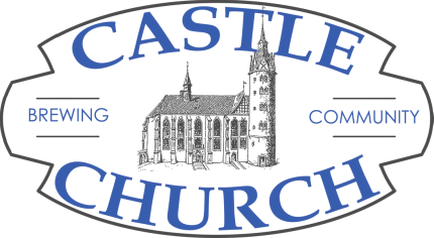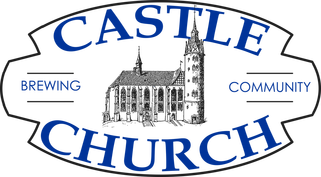Belief in Jesus Christ, The Christian Church,
Scriptures, Creeds, Confessions:
Belief in Jesus Christ:
Jesus is God’s son, sent by God to become human like us. When Jesus died on the cross he abolished our sin and thus restored the relationship of love and trust that God intended to exist between Himself and His children. Jesus was born on earth of a virgin, by the power of the Holy Spirit. Jesus was at once truly God and truly human.
We believe Jesus is the Messiah chosen by God to show His love for the world. He is God, yet with all the limitations of being human. His relationship to God, however, was not one of sin but rather of perfect obedience to the Father’s will. The man, Jesus of Nazareth, lived and died in Palestine under Roman administrator Pontius Pilate.
For the sake of a sinful world, Jesus was condemned to death on the cross. But death could not contain him. On the third day after his execution, the day we observe as Easter, Jesus appeared among his followers as the risen, living Lord. Jesus Christ lives today wherever there are people who faithfully believe in Him and wherever the Good News of reconciliation is preached and the Sacraments administered.
The Christian Church:
The Christian church is made up of those who have been baptized and thus have received Jesus Christ as the Son of God and Savior of the world. Sometimes it is referred to as “the Body of Christ.” Lutherans believe that they are a part of a community of faith that began with the gift of the Holy Spirit, God’s presence with His people, on the day of Pentecost. The church, regardless of its physical form, is the fellowship of those who have been restored to God by Christ. Indeed, to be called into fellowship with Christ is also to be called into community with other believers.
The church is essential to Christian life and growth. Its members are all sinners in need of God’s grace. It has no claim on human perfection. The church exists solely for the hearing and doing of God’s Word. It can justify its existence only when it proclaims the living Word of Christ, administers the Sacraments and gives itself to the world in deeds of service and love.
Scriptures:
A cradle that holds the infant Jesus. Baby blankets that clothe the newborn Christ. Lutherans often use these well-known metaphors from Martin Luther to describe the Christian Scriptures and their importance. These simple metaphors clearly and profoundly describe both what the Scriptures are and what is their purpose.
Simply stated, the Scriptures tell about Jesus Christ. The Holy Spirit uses the Scriptures to present Jesus to all who listen to or read them. That is why Lutheran Christians say that the Scriptures are the “source and norm” of their teaching and practice. As the Gospel writer John wrote, “these things are written so that you may come to believe that Jesus is the Messiah, the Son of God, and that through believing you may have life in his name” (John 20:31).
Obviously, the Scriptures that are collected into a book or Bible describe and speak about many other things — everything from the creation of the world to the world’s end. Because these writings originate from a time period that spans about a thousand years and come to us in a variety of handwritten manuscripts and fragments, they have been studied carefully with all the tools of research that are available. This research continues to enrich understanding of the Scriptures and their message.
Despite the diversity of viewpoints and the complexity of the many narratives contained in the Scriptures, Lutheran Christians believe that the story of God’s steadfast love and mercy in Jesus is the heart and center of what the Scriptures have to say.
Creeds:
Like the Scriptures, the three ecumenical creeds — the Apostles’ Creed, the Nicene Creed, and the Athanasian Creed — are written documents. They originate from the earliest centuries of the Christian church’s history, a time when theological and philosophical questions about the identity of Jesus were widely debated among Christians. All three creeds affirm that God is fully present in Jesus, that Jesus Christ is both God and human (not a semi-divine or superhuman creature that is neither). These three creeds are called ecumenical because they are all accepted and used by the overwhelming majority of the world’s Christians. All three are affirmed in the Lutheran confessional writings and in the ELCA’s governing documents.
Although these three creeds, like the Scriptures, are written, most Christians experience and use them spoken aloud with other Christians in worship. Along with many other Christians, Lutherans use the Apostles’ Creed at baptism; it is also the Creed most often used in basic Christian education (as in the Small Catechism). Lutheran Christians often use the Nicene Creed at festivals like Easter and Christmas and during seasons of the year related to those festivals. Some Lutheran congregations recite the Athanasian Creed on Trinity Sunday (the Sunday after Pentecost) because of its focus on the relationships between the persons of the Triune God.
Lutheran Confessions:
On many occasions in the 16th century, Martin Luther and other evangelical reformers were asked to give an account of their teaching and practice. In response Philip Melanchthon, one of Luther’s colleagues, wrote, “We must see what Scripture attributes to the law and what it attributes to the promises. For it praises and teaches good works in such a way as not to abolish the free promise and not to eliminate Christ.” Although the writings that comprise the Book of Concord engage a range of issues regarding teaching and practice, they do not address every question or topic. Rather, they focus on the Scriptures’ purpose: to present Jesus Christ to faith.
The Book of Concord includes seven writings composed by Luther and others. Lutheran churches around the world have affirmed these writings, and the ELCA affirms them in its governing documents. Lutherans most often use them in teaching — for example, when the Small Catechism is used in basic Christian instruction, or when the Augsburg Confession is used to teach women and men preparing for ministry.
Jesus is God’s son, sent by God to become human like us. When Jesus died on the cross he abolished our sin and thus restored the relationship of love and trust that God intended to exist between Himself and His children. Jesus was born on earth of a virgin, by the power of the Holy Spirit. Jesus was at once truly God and truly human.
We believe Jesus is the Messiah chosen by God to show His love for the world. He is God, yet with all the limitations of being human. His relationship to God, however, was not one of sin but rather of perfect obedience to the Father’s will. The man, Jesus of Nazareth, lived and died in Palestine under Roman administrator Pontius Pilate.
For the sake of a sinful world, Jesus was condemned to death on the cross. But death could not contain him. On the third day after his execution, the day we observe as Easter, Jesus appeared among his followers as the risen, living Lord. Jesus Christ lives today wherever there are people who faithfully believe in Him and wherever the Good News of reconciliation is preached and the Sacraments administered.
The Christian Church:
The Christian church is made up of those who have been baptized and thus have received Jesus Christ as the Son of God and Savior of the world. Sometimes it is referred to as “the Body of Christ.” Lutherans believe that they are a part of a community of faith that began with the gift of the Holy Spirit, God’s presence with His people, on the day of Pentecost. The church, regardless of its physical form, is the fellowship of those who have been restored to God by Christ. Indeed, to be called into fellowship with Christ is also to be called into community with other believers.
The church is essential to Christian life and growth. Its members are all sinners in need of God’s grace. It has no claim on human perfection. The church exists solely for the hearing and doing of God’s Word. It can justify its existence only when it proclaims the living Word of Christ, administers the Sacraments and gives itself to the world in deeds of service and love.
Scriptures:
A cradle that holds the infant Jesus. Baby blankets that clothe the newborn Christ. Lutherans often use these well-known metaphors from Martin Luther to describe the Christian Scriptures and their importance. These simple metaphors clearly and profoundly describe both what the Scriptures are and what is their purpose.
Simply stated, the Scriptures tell about Jesus Christ. The Holy Spirit uses the Scriptures to present Jesus to all who listen to or read them. That is why Lutheran Christians say that the Scriptures are the “source and norm” of their teaching and practice. As the Gospel writer John wrote, “these things are written so that you may come to believe that Jesus is the Messiah, the Son of God, and that through believing you may have life in his name” (John 20:31).
Obviously, the Scriptures that are collected into a book or Bible describe and speak about many other things — everything from the creation of the world to the world’s end. Because these writings originate from a time period that spans about a thousand years and come to us in a variety of handwritten manuscripts and fragments, they have been studied carefully with all the tools of research that are available. This research continues to enrich understanding of the Scriptures and their message.
Despite the diversity of viewpoints and the complexity of the many narratives contained in the Scriptures, Lutheran Christians believe that the story of God’s steadfast love and mercy in Jesus is the heart and center of what the Scriptures have to say.
Creeds:
Like the Scriptures, the three ecumenical creeds — the Apostles’ Creed, the Nicene Creed, and the Athanasian Creed — are written documents. They originate from the earliest centuries of the Christian church’s history, a time when theological and philosophical questions about the identity of Jesus were widely debated among Christians. All three creeds affirm that God is fully present in Jesus, that Jesus Christ is both God and human (not a semi-divine or superhuman creature that is neither). These three creeds are called ecumenical because they are all accepted and used by the overwhelming majority of the world’s Christians. All three are affirmed in the Lutheran confessional writings and in the ELCA’s governing documents.
Although these three creeds, like the Scriptures, are written, most Christians experience and use them spoken aloud with other Christians in worship. Along with many other Christians, Lutherans use the Apostles’ Creed at baptism; it is also the Creed most often used in basic Christian education (as in the Small Catechism). Lutheran Christians often use the Nicene Creed at festivals like Easter and Christmas and during seasons of the year related to those festivals. Some Lutheran congregations recite the Athanasian Creed on Trinity Sunday (the Sunday after Pentecost) because of its focus on the relationships between the persons of the Triune God.
Lutheran Confessions:
On many occasions in the 16th century, Martin Luther and other evangelical reformers were asked to give an account of their teaching and practice. In response Philip Melanchthon, one of Luther’s colleagues, wrote, “We must see what Scripture attributes to the law and what it attributes to the promises. For it praises and teaches good works in such a way as not to abolish the free promise and not to eliminate Christ.” Although the writings that comprise the Book of Concord engage a range of issues regarding teaching and practice, they do not address every question or topic. Rather, they focus on the Scriptures’ purpose: to present Jesus Christ to faith.
The Book of Concord includes seven writings composed by Luther and others. Lutheran churches around the world have affirmed these writings, and the ELCA affirms them in its governing documents. Lutherans most often use them in teaching — for example, when the Small Catechism is used in basic Christian instruction, or when the Augsburg Confession is used to teach women and men preparing for ministry.





